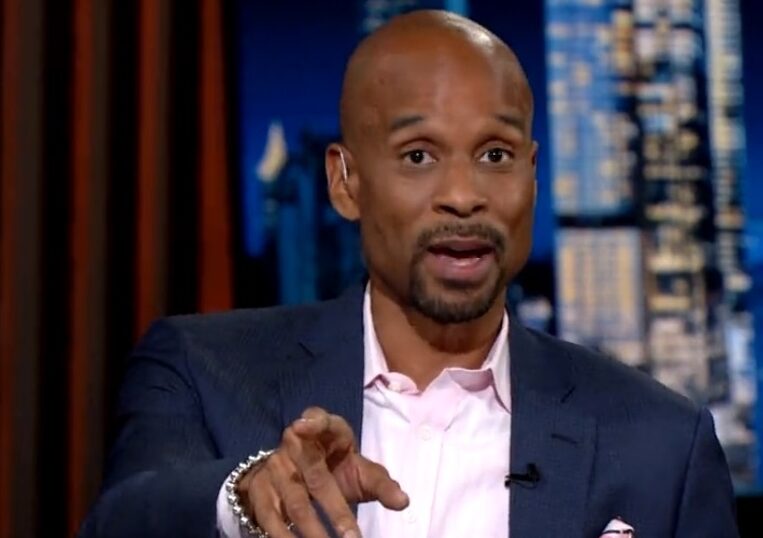The Red Hot Chili Peppers Stadium Arcadium finally hits stores today, I believe. Since the group was pretty angry that the album was leaked, let’s just say I went and got it at a midnight sale and squeezed a week’s worth of listening to it into twelve hours.
Some reviews have said it’s their magnum opus, even a step over Blood Sugar Sex Magik. That’s saying a whole lot, but I could see how someone would say that. If you like your RHCP with more melody and pop sensibility, then this record might be better. If you’re a funkateer and like that sound, then BSSM is the way for you to go. Being a funk fan, I still take BSSM over this one. But this one’s fire.
It’s best appreciated as a career retrospective. It’s mammoth in size–approaching 30 tracks–but fairly limited in scope, largely because there ain’t much that Anthony Kiedis can do with his voice or lyrics. But he is a helluva frontman, so he does his job. It doesn’t really cover lots of thematic ground, but it’s a great blend of the sounds of Californication, By The Way and BSSM. If someone has never heard RHCP, you can give them this record (after you beat them profusely for living under a rock) and they can see what those boys have done for the last fifteen years.
The best part–John Fruschiante, one of my all-time favorite guitarists. Why? Because of all the world’s Hendrix disciples, he picked up on the fact that Jimi’s greatest talent was playing these dreamy solos without abandoning the structure of the song. Fruschiante and Hendrix didn’t quite do solos, really. They did thematic extensions of the existing melodies. Sounds a lot less like showing off, and that’s a good thing.
But I say all that to get us into allmusic.com’s review of the record. I don’t agree with much of it–mostly the knock on Rubin, who’s skill is stripping records down and flattening them out enough to make outlandish sounds accessible–but an interesting point was raised.
In fact, like how Blood Sugar was the tipping point when the LPs ceded ground to CDs, Stadium Arcadium could be seen as the point when albums were seen a collection of digital playlists. Yes, it’s pressed up as a two-disc set — including an extravagant but pointless special edition housed in a clunky box that includes a make-yer-own-spinning-top — but this is an album that’s designed for you to mix and match, create your own playlist, rip and burn on your own. It’s designed for you to sequence its 28 songs in some kind of cohesive manner, since the band sure didn’t take the time to do that here; it’s the first major album by a major band that makes as much sense on random as it does in its proper sequencing.
That’s a really interesting point. Is the album dead? If it is, what does that mean?
I’ve long said that the album was pop music’s most important technological advance. Instead of treating songs as one-off entities made to be sold individually, the album allowed artists to indulge interesting sonic and intellectual interests and put them together to make broad yet individual statements. Instead of writing essays, musicians began writing books. They were able to try new things, but also able to put them in frameworks that made them easier to appreciate, analyze and understand. I love the ebbs and flows of a well-sequenced album, and it’s the one thing I missed when I got all digital (and before it became so easy to download albums in their entirety instead of having to get each track individually and then sequence the songs).
The most famous example of a group’s allegiance to the album would probably be “Stairway to Heaven,” which Zeppelin refused to release as a single because they said it couldn’t be appreciated outside the fabric of IV. In a way, they’re right. It hits even harder when it comes behind “The Battle of Evermore,” and the same can be said about how “When the Levee Breaks” hits following “Going to California.”
But when I listen to Stadium Arcadium, I do sorta see what the above reviewer said. I’ve listened to this record in sequence and on random, and it didn’t feel seriously different. It was no more or less enjoyable, but it surely wasn’t different.
Is this where music is going? Are we going to reach the point where the album becomes irrelevant and, in an interesting bit of anachronism, we go back to jumbles of songs? And is that a good thing? That’s going to be something I think about.
For the record, I don’t think this RHCP record is a hodgepodge of stuff, and I don’t find it to be too repetitive. Again, it’s Kiedis. I know I’m not going to get a lot of thematic variance from him. And that’s just fine with me because that’s what he does. I listen to RHCP for that incredible band, and they’re incredible here.
But if the album dies, I’m not sure how I’ll feel about that. No matter what, this has been a great year for music, IMO. Already gotten five albums I’ll be listening to for a while–Tip’s, Juve’s, E-40’s (never thought I’d say that), Ghosface’s, and now this RHCP.
And Kast drops in June!

Comments